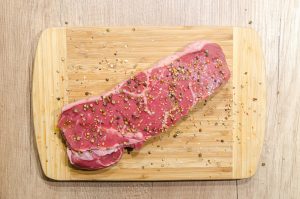Where’s the beef? Class action alleges price-fixing, restricting supply
 A Quebec class action is being brought against four beef companies that are alleged to have an 85% share of the Canadian market and an 80% of the American market.
A Quebec class action is being brought against four beef companies that are alleged to have an 85% share of the Canadian market and an 80% of the American market.
The plaintiff, Option consommateurs, a Quebec-based non-profit consumer advocacy group, alleges that the defendants conspired to unduly restrict competition related to the production, supply or sale of beef in Quebec since 2015.
The defendants in the proposed class action are: Cargill, Inc., Cargill Meat Solutions Corp., Cargill Ltd., JBS USA Food Company, Swift Beef Company, JBS Packerland Inc., JBS Canada ULC, Tyson Foods, Inc., Tyson Fresh Meats, Inc., National Beef Packing Company, LLC.
The damages being sought are equivalent to the revenues generated by allegedly artificially inflated portion of the selling prices of beef in Québec.
The suit references a request by 11 state attorneys general in the United States asking the US Department of Justice to open an anti-trust investigation into the conduct of the defendants.
Price-fixing, market allocation, restricting supply
Price‑fixing is when two or more competing businesses agree to set the same prices for goods or services. Market allocation is when two or more competitors or potential competitors agree to divide up a market, customers or territory among themselves. Restricting supply is when competitors or potential competitors agree to limit the amount of goods or services they produce or supply to a market (see: Competition Bureau “Bid-rigging, price-fixing and other agreements between competitors — Common types of illegal agreements that hinder competition“).
This conduct is illegal under Canada’s Competition Act,
In addition to facing class-actions for damages from private citizens, individuals convicted of price-fixing may receive fines of up to $25 million and/or be sentenced to a jail term of up to 14 years. Corporations can also be convicted and fined.













